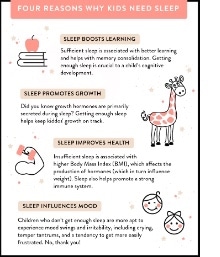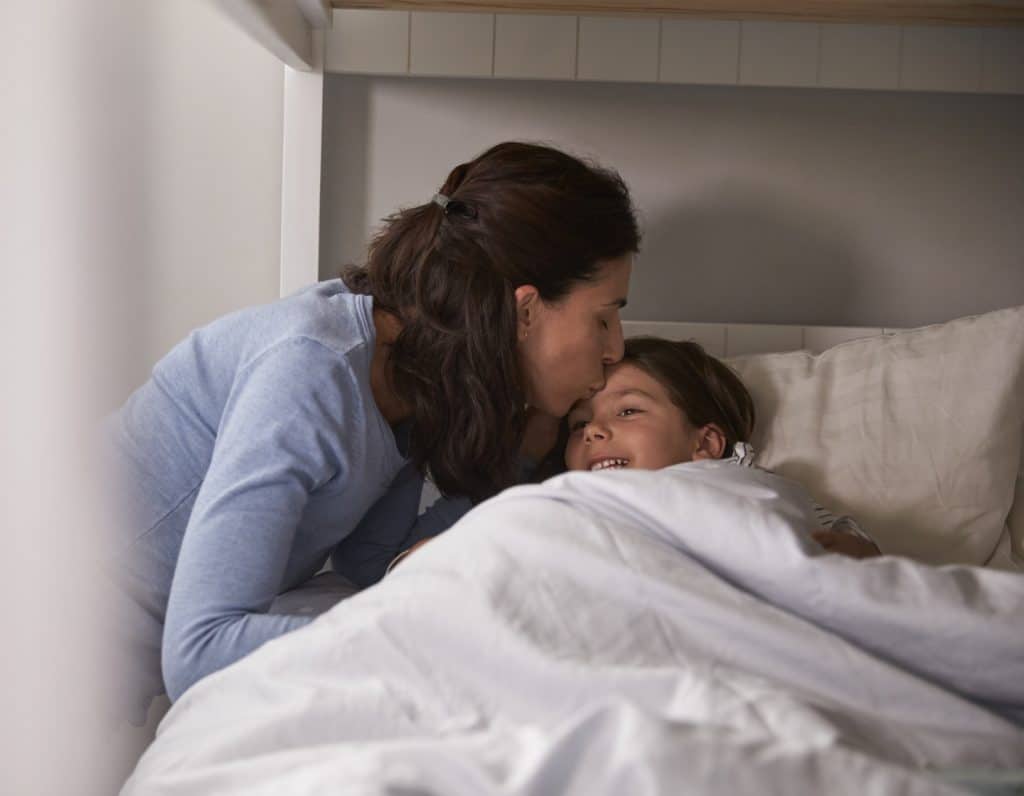

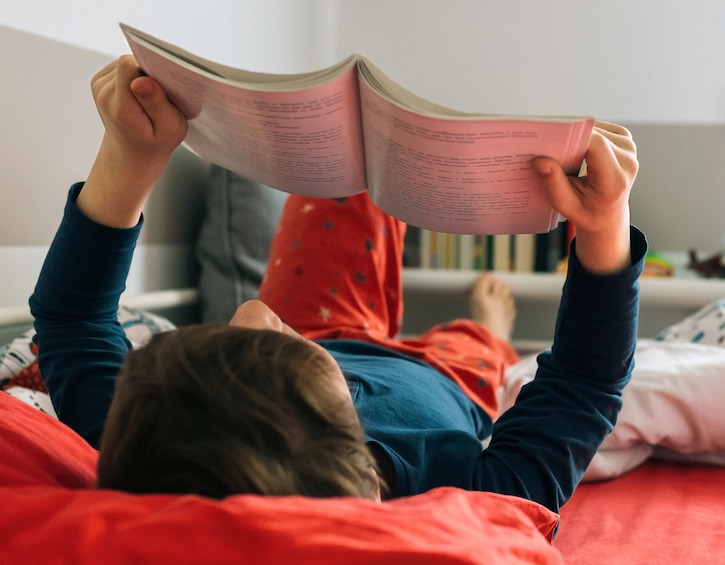

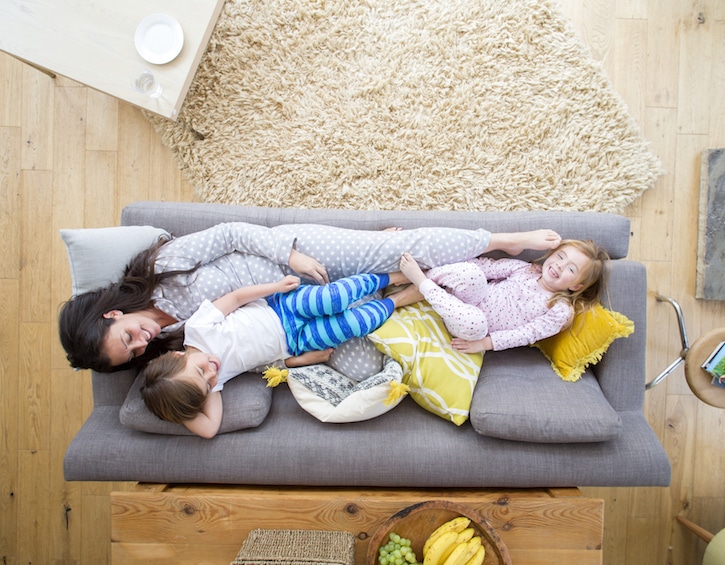

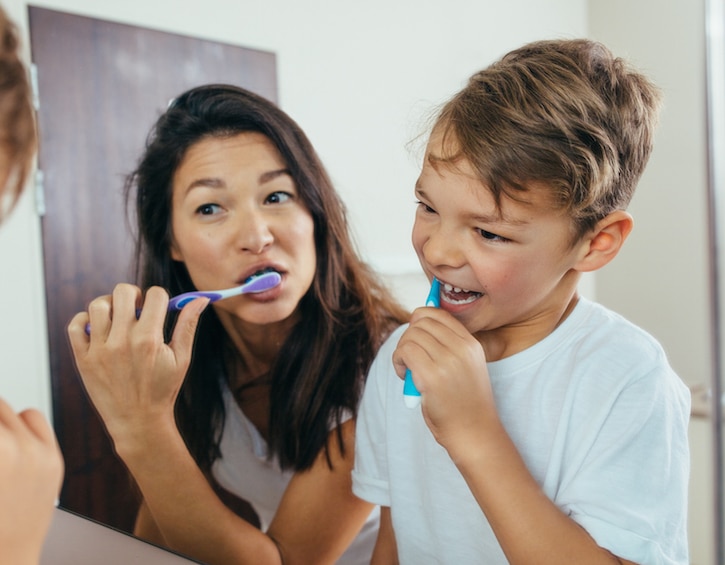
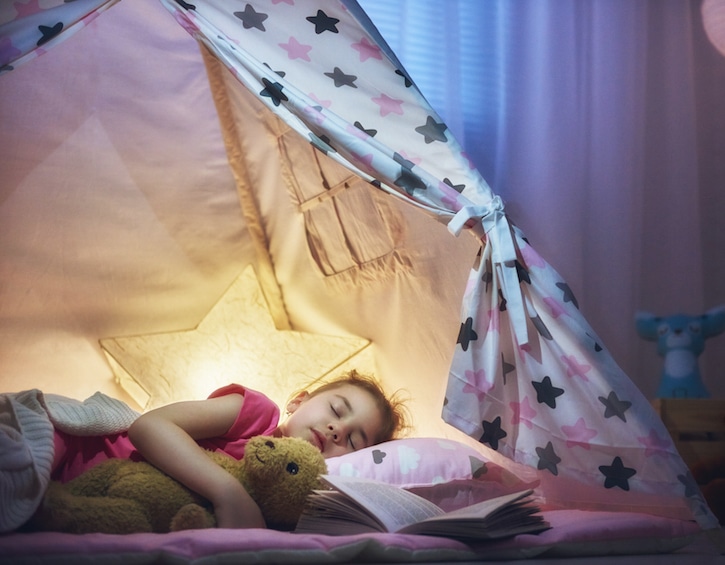
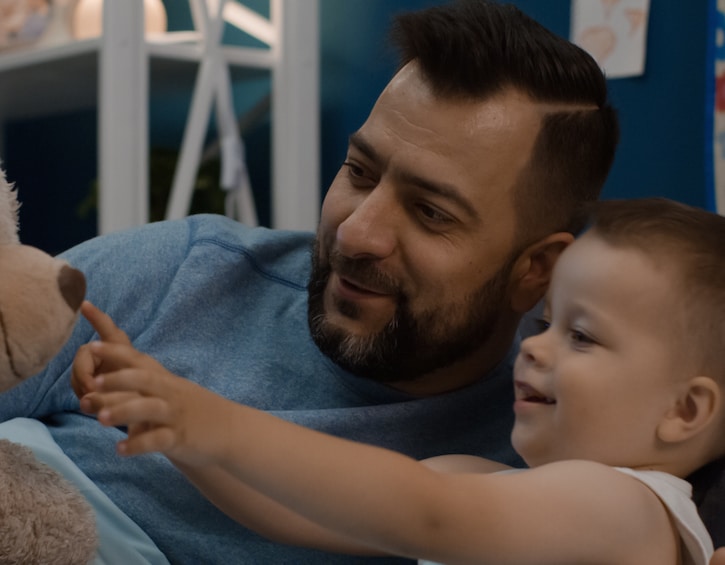
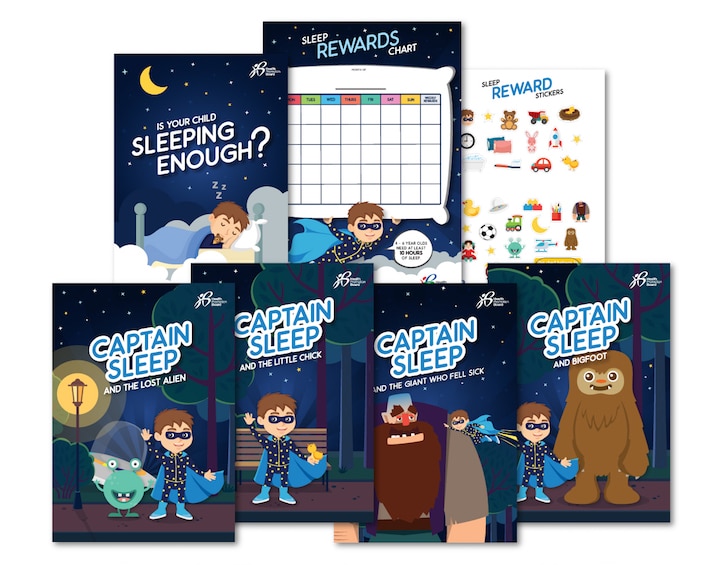
Is bedtime a nightly battle for you, mama? Here are four common myths about child sleep and bedtime that could help your fam rest easy
Mamas in the know have got a handle on the importance of nutrition in kids’ lives; they know physical movement boosts motor skills; and they know praising effort rather than achievement encourages a growth mindset. But one crucial area where parents consistently short sell their kiddos (probably because we’re exhausted from focusing on everything else all day!) is sleep.
“Sleep serves as a strong foundation for the wellbeing of a child’s health and growth,” says Gary Khoo, Director of Preventive Health Programmes at Singapore’s Health Promotion Board.
“Sleep is as important as good nutrition and exercise. When children get adequate quality sleep, they are able to recharge and prepare for the day ahead. They will also experience the benefits of having a healthier mind and body, as well as better learning and mood.”
And yet many parents struggle to ensure their kids get adequate sleep. (Not sure how much sleep your kiddo should get? Check out our handy sleep chart with hourly recommendations broken down by age!)
How much sleep does your child get? Click here to enter our sleep survey for your chance to win one of FIVE $100 CapitaLand Malls vouchers!
If sleep is a stress point for you, mama, you are definitely not alone! The experts at goodsleep.sg have shared four common myths about kids’ bedtime, along with four useful strategies to make bedtime better for everyone.
Click through our gallery to see more! And be sure to visit goodsleep.sg to download your handy children’s sleep kit filled with bedtime stories, sticker charts, and much more!
It’s good to let kids get the wiggles out by running, screaming and jumping before inevitably passing out from exhaustion, right? Wrong!
Fact: Instead of getting tired, your child’s adrenaline levels will spike and instead of going to sleep, they just might want to be up all night!
Fact: While there is certainly a healthy range of adequate sleep time that can vary per child, the fact of the matter is that young kids need a lot of sleep. Children ages 3 to 6, for example, need 10-13 hours of sleep per day (this can include naps, mama!). Children aged 7 to 11 should aim for 9-11 hours of sleep. Even if your kiddo seems fine, lack of sleep will catch up to him: it’s proven to have an effect on alertness, mood, memory and physical health.
Fact: Rather than calm a busy mind, research has shown that screens actually disrupt the sleep cycle by emitting light with a blueish hue. Light is the most important regulator of our biological clock, and blue light specifically is what regulates the secretion of melatonin, the sleep hormone.
When exposed to blue light, our body suppresses the release of melatonin, and we feel more alert and awake.
Fact: We can’t stress this enough, mama: young children need A LOT of sleep! Yes, there is a healthy range that varies from one child to the next, but there is also a recommended sleep duration for all different ages, from newborns on up to adults.
Why? Because our bodies need extra love and care when we’re growing.
- Children 3 to 6 years old should have 10-13 hours of sleep
- Children 7 to 11 years old should have 9-11 hours of sleep
Establish a regular, relaxing routine before bedtime, such listening to soothing music or reading a book. These enjoyable activities help your child to relax and anticipate bedtime (and they happen to be a wonderful bonding activity!). Whatever the routine, remember to allocate enough time so that your child can get to sleep on time to hit their hourly requirements.
Even if you’re on holidays, or you want to go out to dinner on a Saturday night, you child’s sleep routine should be maintained so that he or she follows a consistent sleep pattern. Remember to allocate enough time for bedtime routines, such as brushing teeth and putting on pyjamas.
Keeping the bedroom quiet, cool and dark can help your child feel comfortable. The room should not be too hot or too cold. Some children may like a dim nightlight, which is fine.
Avoid things that may stimulate your child in the hour leading up to bedtime, as they may disrupt the sleep cycle and affect the quality of sleep. This includes exercise and other vigorous activities, bright screens, and caffeinated beverages.
Want to learn more, mama? Visit goodsleep.sg to download their awesome sleep kit, which includes everything from bedtime stories, to sticker charts for kids, to DIY sleep schedules and other suggested “wind-down” activities for bedtime. Sweet dreams!
Brought to you in partnership with Health Promotion Board. Sleep Kit image by Health Promotion Board; all other images sourced via Getty






 View All
View All




 View All
View All










 View All
View All




